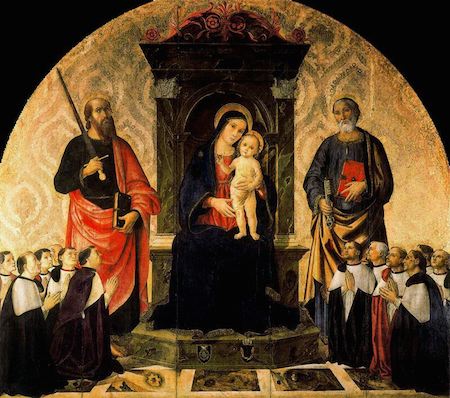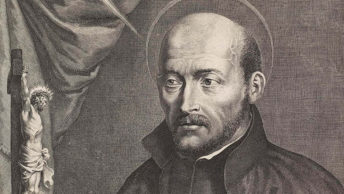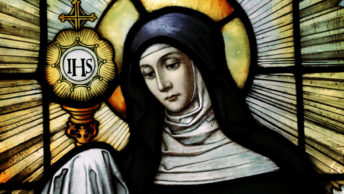 If only St. Peter was on Facebook! He would have had a whole bunch of friends. People from all over the world could have seen pictures of him entering Rome, standing in the forum, waving from a seat in the Colosseum, eating gelato at the chariot races. People in China could have read his sermons.
If only St. Peter was on Facebook! He would have had a whole bunch of friends. People from all over the world could have seen pictures of him entering Rome, standing in the forum, waving from a seat in the Colosseum, eating gelato at the chariot races. People in China could have read his sermons.
If only St. Paul could have tweeted. He would have followers everywhere. They could have read his reactions to the Galatians returning to Judaism in only 140 words or less. He would have had to condense his Letter to the Romans a bit, or extend it over a few hundred tweets, but he still would have been very popular.
But Peter did not have Facebook, and Paul did not have a Twitter account. In fact, they didn’t even have electricity or phones. Still, they knew how to get the Gospel message out. Peter traveled from Jerusalem to Antioch to Rome. He was known so well throughout the ancient world that there is a legend, possibly true, that when Paul preached the Gospel to the people of ancient Syracuse in Sicily, they responded that they wanted to hear from Peter before they converted. Supposedly, on arriving in Rome, Paul told Peter who sent a companion of his to Syracuse, St. Marziano, the first bishop of Syracuse.
It was certainly clear to the Romans that this Peter and Paul whom they held captive in Rome were mainly responsible for the quick spread of Christianity throughout the empire. The Romans thought they could stop this by killing them both, crucifying Peter head down and beheading Paul, but Peter and Paul had a communication system infinitely more powerful than Facebook or Twitter. They had the Holy Spirit. The Holy Spirit was the force that worked through them and through all Christians to convert the world to Jesus Christ.
Consider this, there was not a whole lot impressive about Paul’s bearing. He was little. Actually, his name was changed from Saul of Tarsus to Paul as a bit of a joke, Paul comes from the Latin word paulus for little. He was fiery, true, and there were people throughout the ancient world who listened to him or read his letters, but there was more to Paul than met the eye. The people he spoke to not only became followers of the new way of life, they willingly offered their lives for Jesus Christ. Paul gave them the Holy Spirit he had received. They lived and died, not for Paul, but for God.
Peter was a large fisherman. The remains uncovered under St. Peter’s Basilica in Rome and marked, “Here lies Peter,” are those of a large man. Peter was a fisherman. How many fishermen became the leaders of movements that changed the world? By my count, just one. Peter did not do this on his own, though. Jesus made it quite clear to Peter in Matthew 16:17 that His Heavenly Father inspired Peter to proclaim that Jesus was the Christ. Peter would be inspired by the Spirit throughout his life. He would feed the Lord’s sheep.
The eleventh chapter of the Book of Revelation speaks about two witnesses who would be put to death in the great pagan city, but who would rise and give testimony to God. Perhaps Revelation was speaking about Moses and Elijah. Or, perhaps it was speaking about Peter and Paul, who would have died before Revelation was written. Certainly, Peter and Paul gave witness to Jesus Christ with their words, their deeds and their lives.
The power that Peter and Paul had to spread the Gospel has been given to us. We have received the Holy Spirit. We can be witnesses to Jesus Christ. Others can see Christ in us and through the working of the Holy Spirit return to God. We need to be less concerned about our stature in the world, be it physical or social, and more concerned about our place in the Body of Christ. We need to focus on Jesus Christ, as Saints Peter and Paul did, and let His Spirit work through us.
Peter and Paul did not have Facebook or Twitter. They didn’t need them. We don’t either. We have what they had. We have the Holy Spirit.
We pray today that through the intercession of these two great saints of the Church we might have the determination and the courage to proclaim Jesus Christ.








